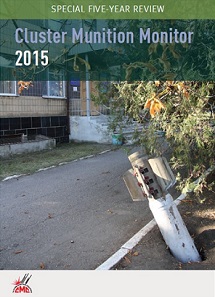
Saudi-led Coalition Used Banned Cluster Bombs in Yemen: Cluster Munition Monitor 2015
Local Editor
"One or more members of a Saudi Arabia-led coalition has used air-dropped cluster munitions in northern Yemen since 25 March 2015", according to a new report by Cluster Munition Monitor 2015 which was released on Thursday.
The arms division advocacy director at Human Rights Watch [HRW] and an editor of the report, Mary Wareham, said that, "Cluster munitions are banned weapons that shouldn’t be used by anyone under any circumstance because of the harm to civilians at the time of attack and long afterward".
"Those who use cluster munitions should stop immediately, and join the international ban without delay", she said.
The Convention on Cluster Munitions bans these weapons because of their widespread indiscriminate effect at the time of use, and the long-lasting danger to civilians. Cluster munitions can be fired by artillery and rocket systems or dropped by aircraft. They typically explode in the air and send dozens - sometimes hundreds - of smaller bomblets or submunitions over an area the size of a football field. Submunitions often fail to explode on initial impact, leaving duds that act like landmines and pose a threat until cleared and destroyed.
Cluster Munition Monitor 2015 is the annual report of the Cluster Munition Coalition [CMC], the global coalition of nongovernmental organizations co-founded by HRW. HRW leads the Cluster Munition Coalition’s monitoring of adherence to the treaty’s provisions banning the use, production, transfer, and stockpiling of cluster munitions.
"Countries that care about protecting civilians should condemn any use of cluster munitions and put pressure on users to abide by and join the convention", Wareham further added.
A Saudi-led coalition backed by the United States has been carrying out airstrikes against Yemen since March. The airstrikes have not been authorized by the UN.
